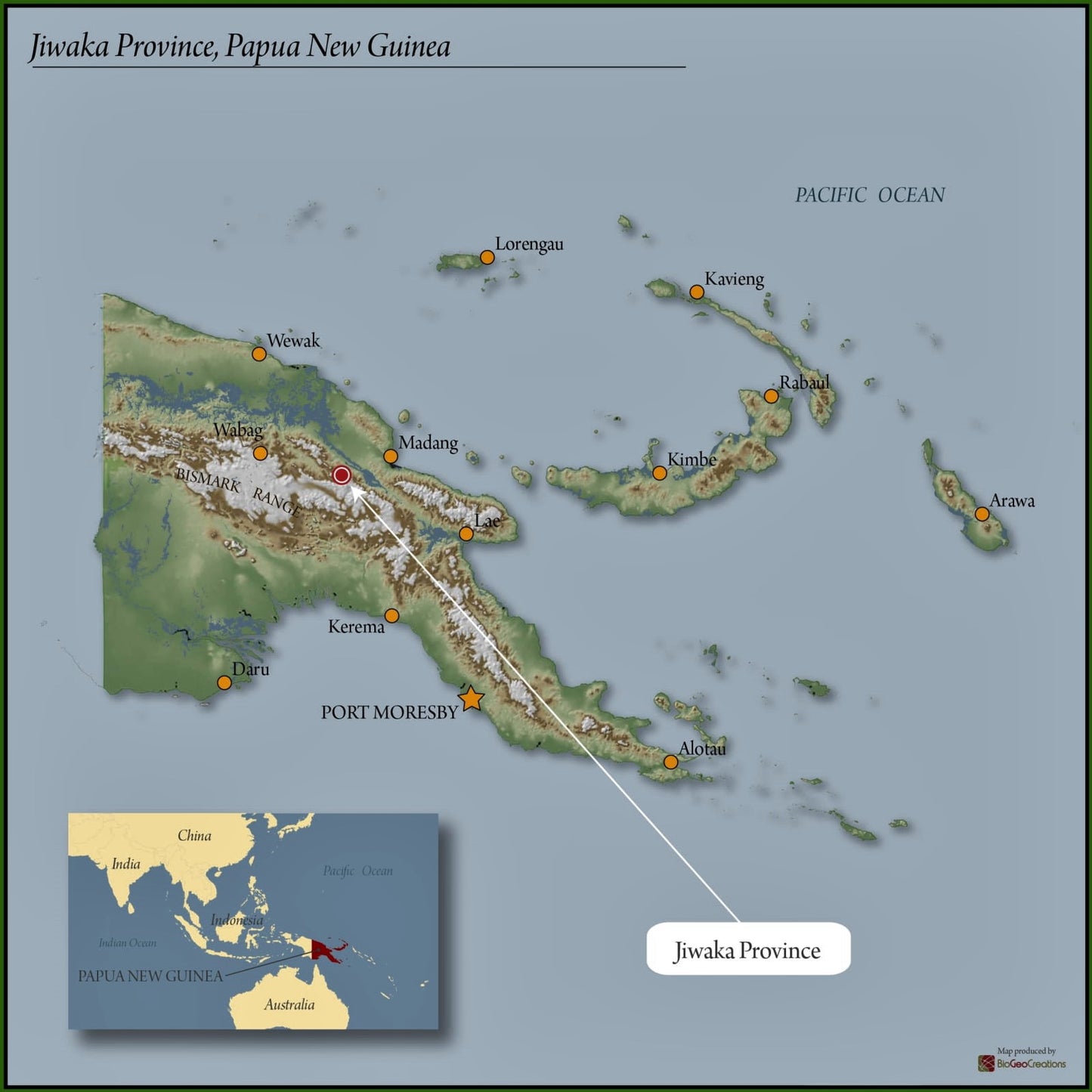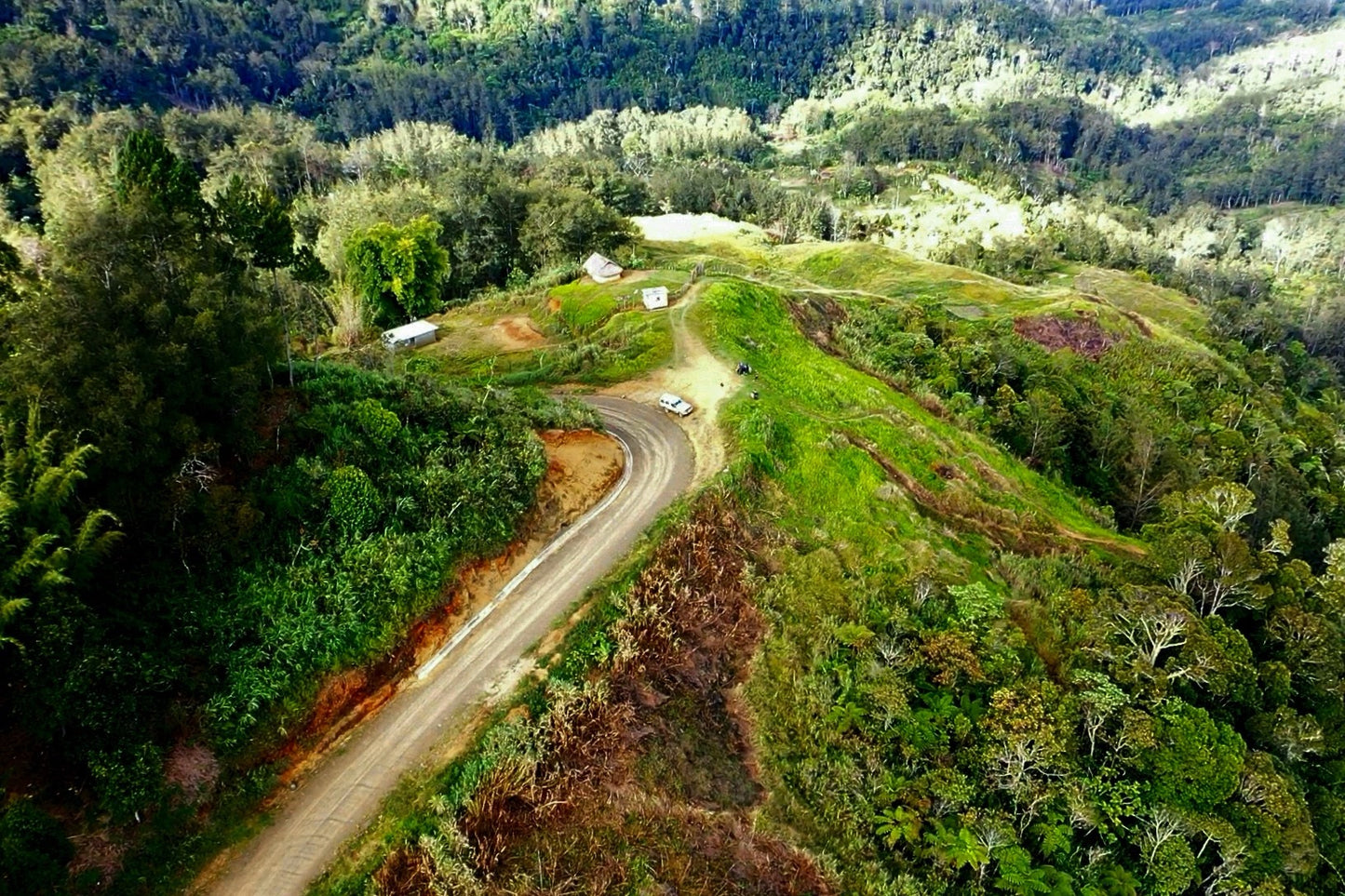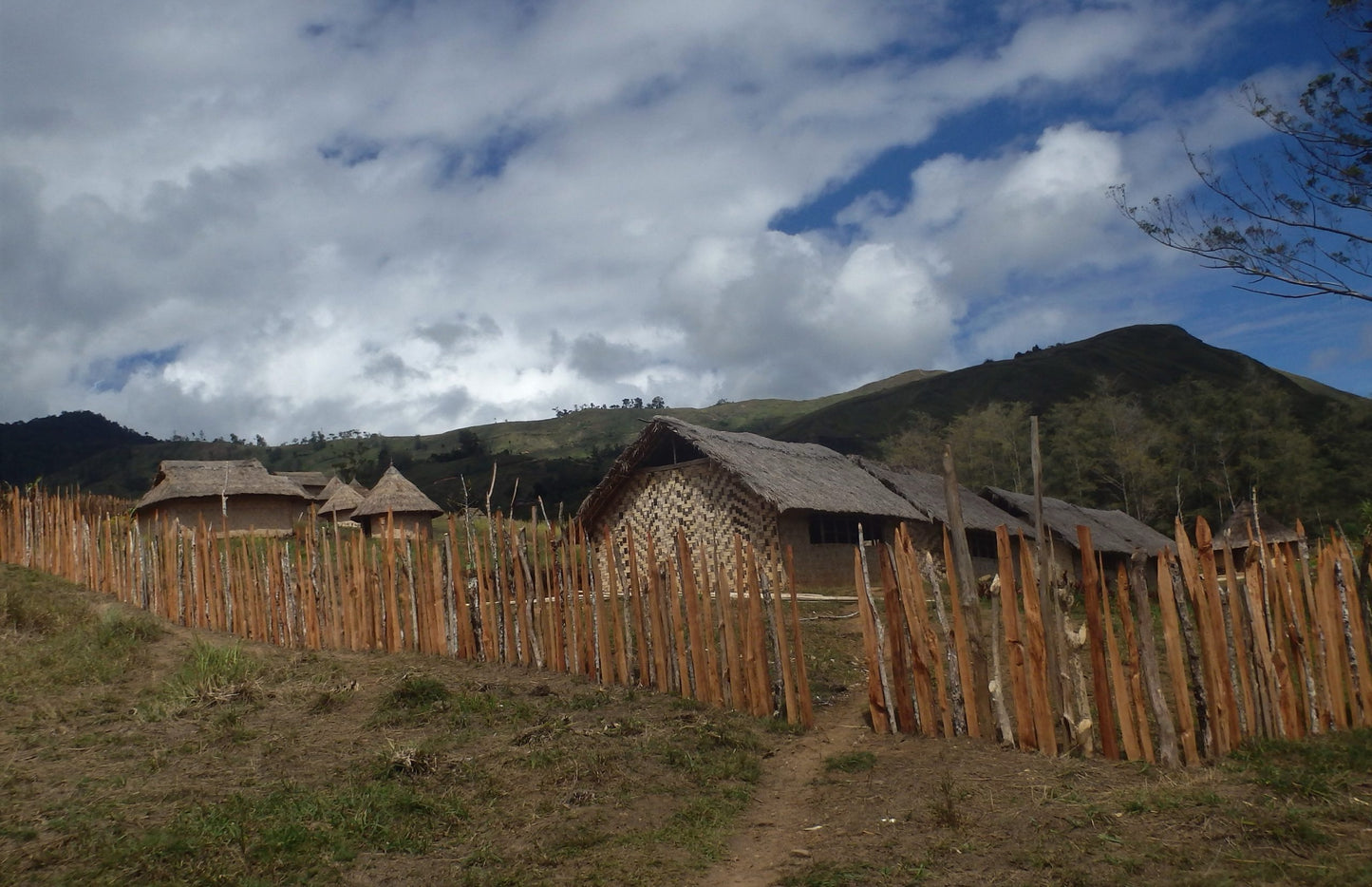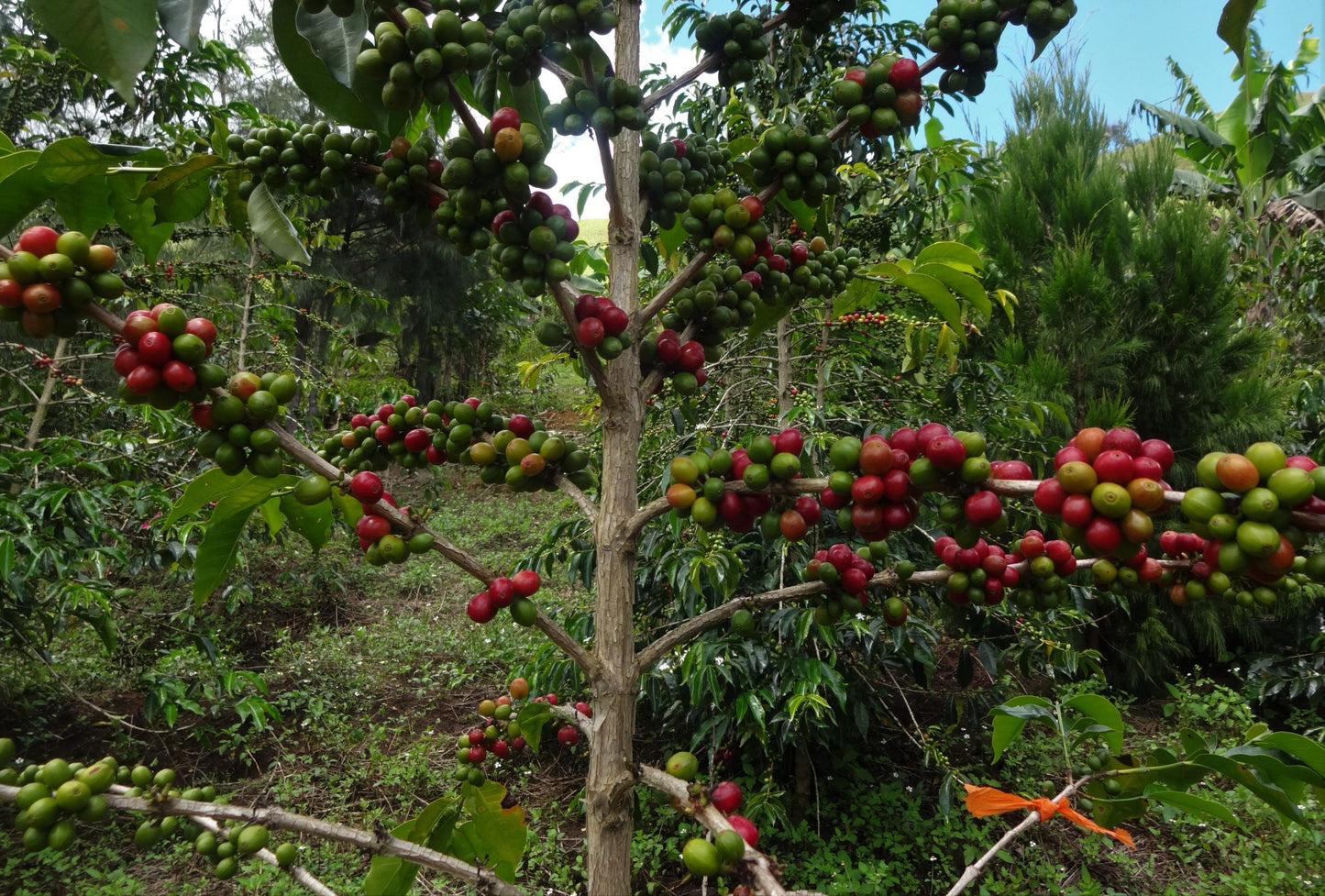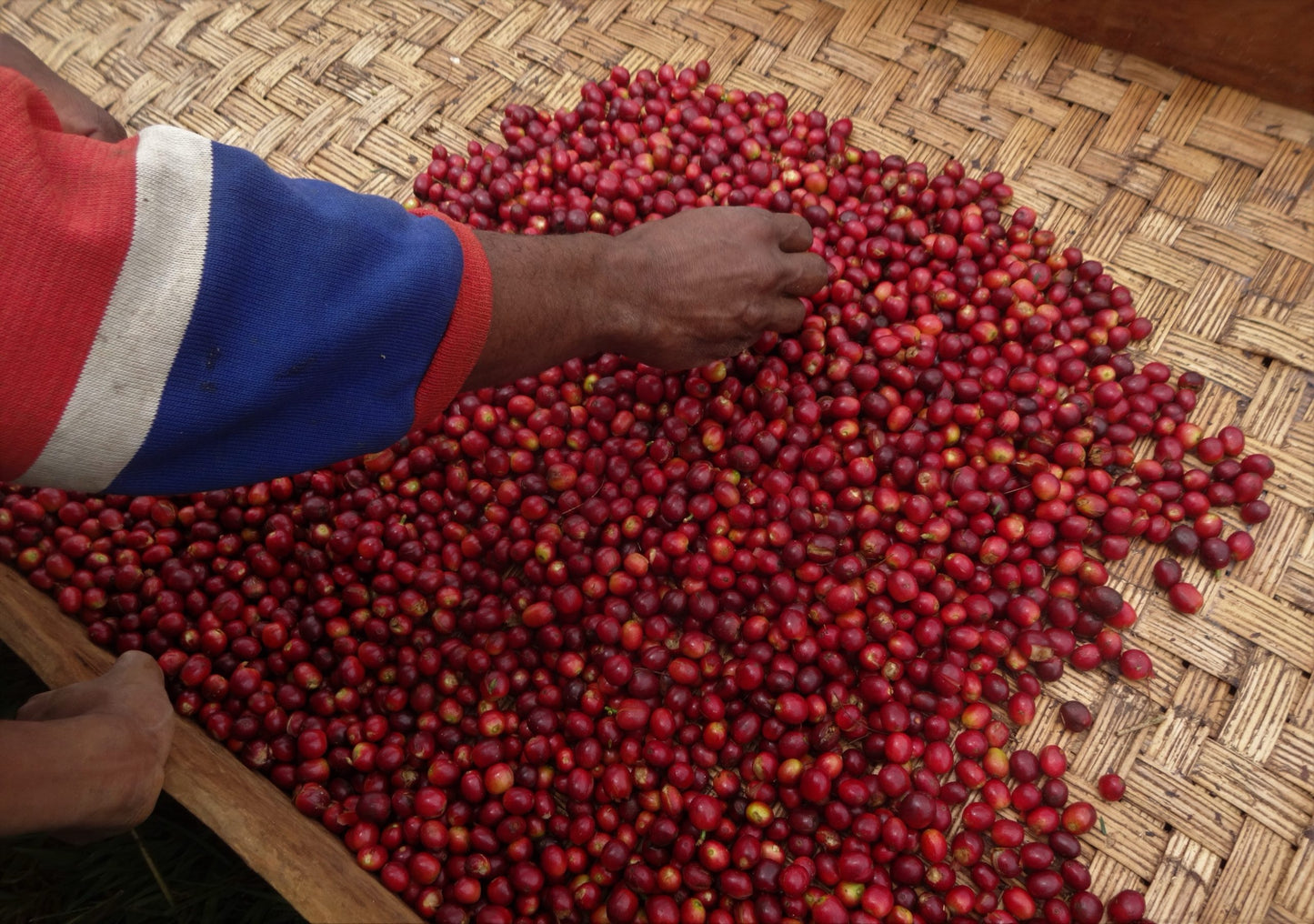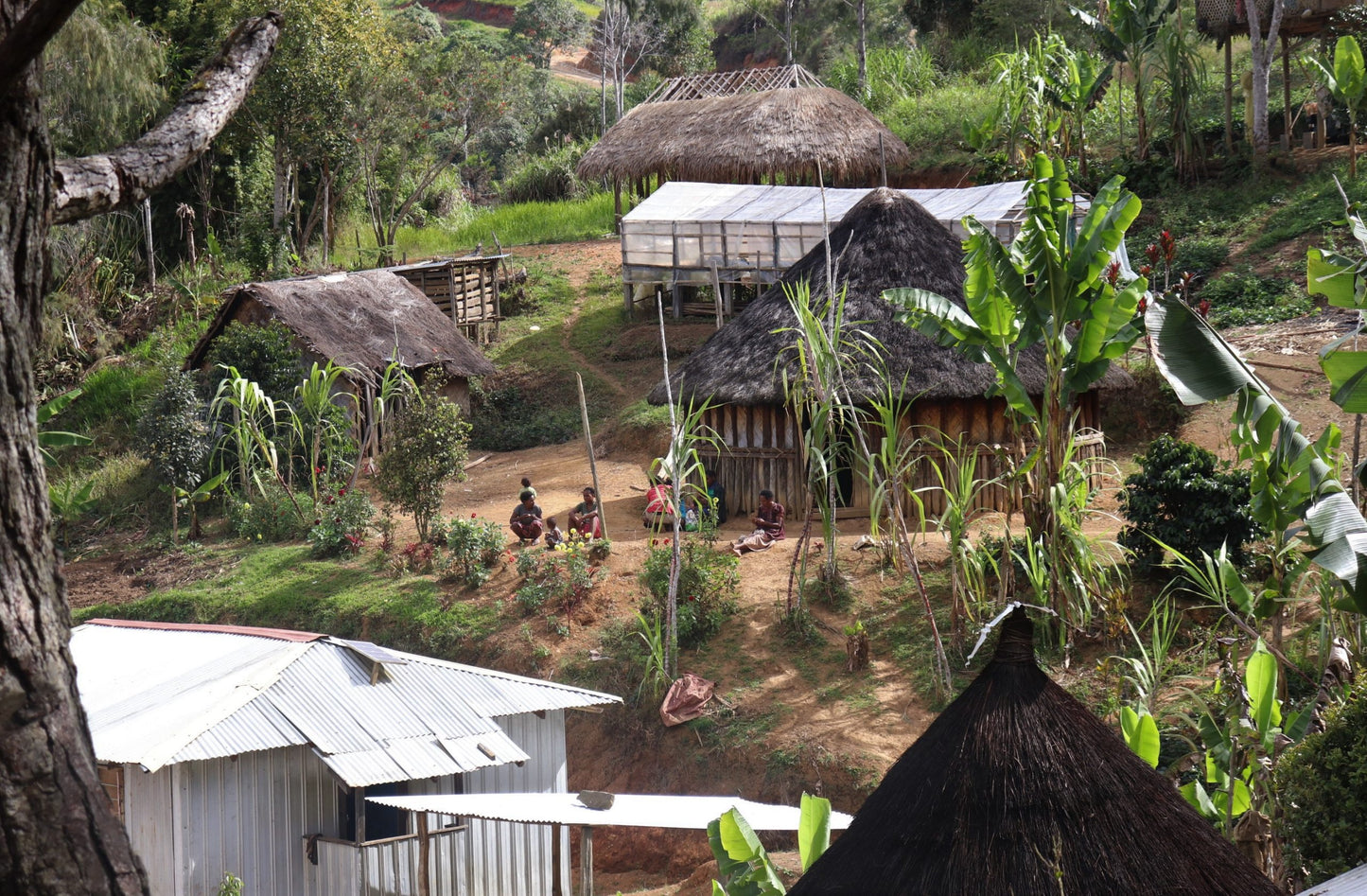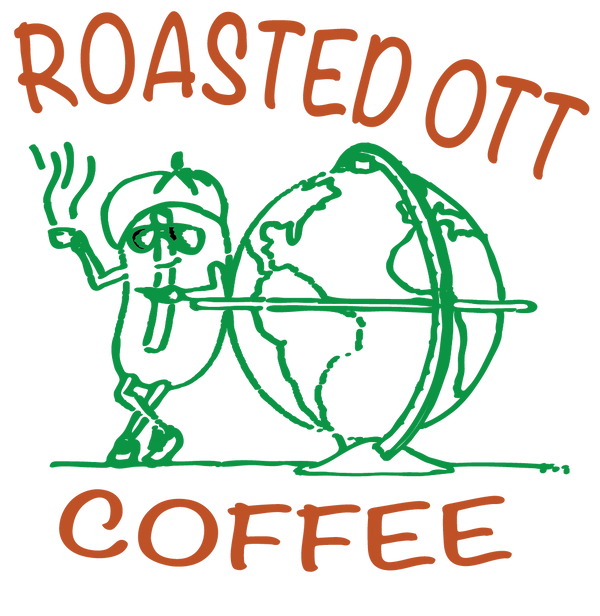PAPUA NEW GUINEA JIWAKA ARUFA NATURAL
PAPUA NEW GUINEA JIWAKA ARUFA NATURAL
Couldn't load pickup availability
GUAVA, PINEAPPLE, STRAWBERRY, PECAN, MILK CHOCOLATE
Grower
600 producers organized around Kagamuga Dry Mill
Altitude
1520 - 1770 masl
Variety
Blue Mountain, Arusha, Mundo Novo, Bourbon
Soil
Volcanic loam
Region
Jiwaka and Western Highlands Provinces, Papua New Guinea
Process
Full natural and dried on raised beds
Harvest
April - August │October – December
BACKGROUND DETAILS
From its earliest introduction to present day, the arabica gene stock in Papua New Guinea (PNG) is considered to be one of the country’s strongest natural assets, not to mention one of the best-preserved typica lineage variety sets in the world. And these delicate genetics clearly thrive in PNG’s highlands, which are some of the most virgin and fertile on the planet.
Between World Wars I and II, Australian settlers would establish more and more large coffee estates across the Eastern, Chimbu, Jiwaka, and Western highland provinces. As commercial exports ramped up, more indigenous Papuans would adopt coffee as a cash crop alongside their traditional economies, in most cases processing at home and selling humid parchment to traveling collectors. For hundreds of thousands of rural farmers coffee would be, and still is, the very first and only source of western currency. To this day expert-level cultivation knowledge largely remains in the possession and experience of PNG’s plantation owners. Remote smallholder coffee tends to fall short of its potential, receiving only scarce quality interventions from ambitious millers and exporters.
This unique natural lot is made possible by Monpi Coffee, a miller and exporter based in both Garoka and Mt. Hagen, the two main coffee industry hubs in PNG’s highlands. Monpi also partners with independent washing stations and occasionally commissions specific processing styles in collaboration with participating growers. In this case, Monpi worked with the Kindeng Wet Mill to sort and separate exemplary cherry prior to the typical depulping phase, and directly dry the fruit as a full natural, a process that takes a full month in Jiwaka’s cool highlands. Once the drying is complete, the coffee is transported to Monpi’s Kagamuga dry mill for hulling, and finally fully milled for export in Garoka.
In addition to value-added processing programs like this one, Monpi also maintains a business unit dedicated to supporting smallholders directly through training and community support. Called Sustainability Management Service (SMS), the team oversees trainings throughout the year that address agricultural practices, gender equality, youth inclusion, climate change mitigation, and environmental preservation. The Kagamuga dry mill is also developing a coffee nursery to provide new plantings to local farmer networks, to support productivity for their farmers for the long term.
Information and coffee sourced through Royal Coffee.
